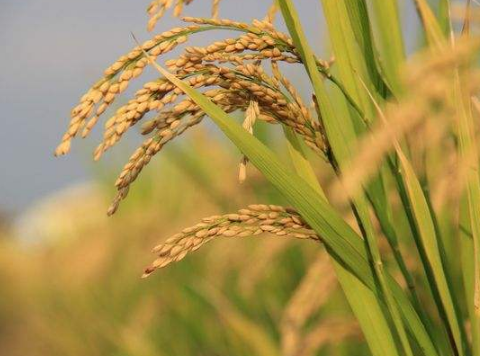【www.shanpow.com--在线汉语词典】
名词到形容词篇1:怎样区分动词、名词、形容词
和汉语中名词动词形容词差不多,动词就是表示动作的词,如跑 跳 唱 搬 飞 ...,名词就是表示名称的词,如铅笔 头 路...,形容词就是形容修饰别的人物等的词,如聪明 重 光滑 ...
辩别名词、动词、形容词的三张“试纸”
徐剑
名词、动词、形容词是三类重要的实词,一般情况下大家都能区分它们。但也有一些词是不大容易分辩的。例如:安静、安排、安稳、出路、出色、出走、 疑问、怀疑、 惊奇、诧异等。
同学们是否记得化学课上,老师是怎样教大家检验溶液酸碱性的?那是用一种石蕊试纸,把待测的溶液滴在试纸上,若试纸发蓝,就说明溶液是碱性,如试纸变红,则说明溶液为酸性。
辩别名词、动词、形容词也可以用“试纸”,主要有下列三张:
一是“不”字。名词是表示人和事物名称的词,它有一个特别脾气:不允许“不”字放在它的前面;而动词、形容词前面可以放“不”字。这样我们先用“不”这张“试纸”,把名词和动词、形容词区别开来。如分辨上面列举的10个词,将“不”依次放在它们前面,“不出路”、“不疑问”不行,没有这样的说法,这说明“出路”“ 疑问”是名词,其余的则是动词或形容词。
二是“很”字。名词前面也不能用“很”这个词,形容词前面却能用。动词对“很”的用法分两种情况:表示动作行为、发展变化、动作趋向以及存在判断的动词,不让“很”紧挨在前面;表示能够、愿意以及心理活动的动词前面可以用“很”字。用“很”字这张“试纸”,可以把形容词与前者情况的动词区别开来,如说“很安静”、“很安稳”、“很出色”可以,说明“安静”“安稳”“出色”是形容词,而不能说“很安排”、“很出走”,“安排”“出走”又表示动作行为的,则可断定“安排”“出走”是动词。
三是“动作对象”。要区分动词和形容词,我们还可以用第三张“试纸”,即看它后面能不能带上表示动作对象的词,能的绝大多数是动词,不能的是形容词。如“怀疑他人”“怀疑一个问题”,说明“怀疑”是一个动词;而“惊奇”、“诧异”后面无法带上表示动作对象的词,可以肯定“惊奇”、“诧异”是形容词。此外必须注意到有极少数动词,特别是表示能够、愿意的那些词后面也不能带有表示对象、目的、或结果的词。如“能、会、愿意”等。
绝大部分名词、动词、形容词可以用上述三张“试纸”,加以辨识。
名词到形容词篇2:【知识点】名词变形容词,一篇全总结!
【知识点】名词变形容词,一篇全总结! 2017-05-15 乐中学 乐中学微信号 lezhongxue 功能介绍 快乐学习,轻松用脑英语中,有时在名词之前或末尾加上不同的前缀或后缀就可以变为形容词。如:
sleep(睡觉)→ asleep (睡着的)
help(帮助)→ helpful (有帮助的)
下面将名词变为形容词的构成方法归纳如下:1. 名词加“-y”构成形容词
rain(雨水)→ rainy (多雨的)
wind(风)→ windy (多风的,风大的)
cloud(云)→ cloudy (多云的,阴天的)
snow(雪)→ snowy (多雪的)
sun(太阳)→ sunny (多阳光的,明朗的)
以一个辅音字母结尾的重读闭音节结尾,须双写最后一个辅音字母。
luck(运气)→ lucky (幸运的)
noise(嘈杂声)→ noisy (嘈杂的,喧闹的)
以不发音的“e”结尾,须去掉“e”。
health(健康)→ healthy (健康的)
2. 名词加“-ful”构成形容词,表示肯定use(使用)→ useful(有用的)
help(帮助)→ helpful(有帮助的)
harm(伤害,损害)→ harmful(有害的)
forget(忘记)→ forgetful(健忘的)
beauty(美丽)→ beautiful(美丽的)
辅音字母加“y”结尾,先改“y”为“i”。
care(关心,小心)→ careful (小心的,仔细的)
pain(疼痛)→ painful (疼痛的)
wonder(惊奇,想知道)→ wonderful (极好的)
color(颜色)→ colorful (彩色的;色彩艳丽的)
thank(感谢)→ thankful (感激的,欣赏的)
3. 名词加“-less”构成形容词,表示否定use (用处) → useless (无用的)
care (关心,小心) → careless (粗心的)
harm (伤害,损害)→ harmless (无害的)
help (帮助) → helpless (无帮助的)
4. 名词加“-ly”构成形容词friend(朋友)→ friendly(友好的)
love(爱)→ lovely(可爱的)
month(月份)→ monthly(每月的)
live(生活,居住)→ lively(充满生气的)
day(天)→ daily(每日的)
5. 在有些国名后加上“-ese”构成形容词,表示“……国的”China(中国)→ Chinese(中国的)
Japan(日本)→ Japanese(日本的)
6. 在某些以元音结尾的名词后加“-n”构成形容词
Asia(亚洲)→ Asian(亚洲的)
America(美国)→ American(美国的)
Australia(澳大利亚)→ Australian(澳大利亚的)
7. 在某些名词后加“-ous”构成形容词
danger(危险)→ dangerous(危险的)
fame(名声,名望)→ famous(著名的)
以不发音的“e”结尾,须去掉“e”。
8. 名词加“-en”构成形容词
wool(羊毛)→ woolen(羊毛的)
wood(木头)→ wooden(木制的)
gold(金子)→ golden(金子般的)
9. 在某些以元音结尾的名词后加“-an”构成形容词Europe(欧洲)→ European(欧洲的)10. 在某些名词后加“-ish”构成形容词fool(傻瓜)→ foolish(愚蠢的)
Spain(西班牙)→ Spanish(西班牙的)
child(孩子)→ childish(孩子气的)
self(自我)→ selfish(自私的)
免费试听课请咨询:
黄老师电话(微信):17760376675
袁老师电话 ( 微信):18011421646
蒋老师电话(微信):13980503458
陈老师电话(微信):18982092551
长按二维码向我转账
受苹果公司新规定影响,微信 iOS 版的赞赏功能被关闭,可通过二维码转账支持公众号。阅读
微信扫一扫关注该公众号
名词到形容词篇3:形容词
形容词
http://www.sina.com.cn 2007年09月11日
16:39 北文图书
第十章 形容词
形容词在句子中的作用
1. 形容词在句子中主要用作:
1)定语:
Shanghai is a big industrial city.
上海是一座大工业城市。
We lived in a beautiful
village. 我们住在一座美丽的村子里。
2)表语:
We could see that she
was very handsome. 我们可以看出她非常英俊。
Don’t feel bad.
Everything will be all right. 不要难过,一切都会好的。
3)宾语补语(构成复合宾语):
We found him asleep on
the sofa. 我们发现他在双人沙发上睡着了。
Who left the door open?
谁让大门敞开着?
4)状语:
They came over, eager
to help. 他们跑了过来,亟于帮忙。
Afraid of the hardships,
they stopped half-way. 由于害怕困难,他们中途停了下来。
2. 间或用作同位语(a)或独立成分(b):
a. He read all kinds of
books, ancient and modern, Chinese and foreign. 他看了各式各样的书,古今中外都有。
b. Strange to say, he
did pass the exam after all. 说也奇怪,他考试竟然及格了。
3. 大多数形容词,既可作定语,也可作表语,但有少数形容词通常只作表语,如:afraid, aloud, alike,
alert, alive, aware, ashamed, unable。
有个别形容词通常作表语,间或作定语(常有特别意思),如:
She is fond of
children. 她喜欢孩子。
I have very fond
memories of my time in Spain.
对我在西班牙的岁月,我有亲切的回忆。
Exercises:
I. 在下面句子中的形容词下划线,说明它们的作用:
1. She had a beautiful
voice. ( )
2. The baby is five
months old. ( )
3. I felt glad that my
sister was well again. ( )( )
4. Your nephew is a
nice little boy. ( )( )
5. We found it hard to
make a living. ( )
6. The entire city
turned out for the celebration. ( )
7. She looked white and
frightened. ( )( )
8. This made me very
sad. ( )
9. Sure enough, they
came to see us. ( )
10. Much interested, he
agreed to give it a try. ( )
11. He said nothing,
but sat silent smoking. ( )
12. Of the 20 people
present, I know only one. ( )
II. 在下面短文中的形容词下划线,并说明它们的作用:
On a cold, frosty day,
the ants began drying the grain they had stored during the summer. A
grasshopper, half-dead with hunger came by and asked the diligent ants for a
morsel to save his life.
“What did you do this
past summer?” responded the ants.
“Oh,” said the hungry
grasshopper. “I kept myself busy by singing all day long and all night, too.”
“We’ll then,” remarked
the ants as they laughed and shut the store house, “Since you kept yourself
busy by singing all summer, you can do the same by dancing all winter.”
— adapted from Aesop’s
Fables
形容词--形容词的比较级和最高级(1)
http://www.sina.com.cn 2007年09月11日
16:39 北文图书
形容词的比较级和最高级(1)
1. 在英语中,在表示“比较…”和“最…”时,形容词要用特别的形式,称为“比较级”和“最高级”,原来的形容词称为“原级”:
原级 比较级
最高级
strong强 stronger较强 strongest最强
2. 形容词的比较级和最高级的构成方法如下:
a. 单音节词和少数双音节词以加-er和-est的方式构成:
原级 比较级
最高级
young年轻 younger较年轻 youngest最年轻
old老 older较老 oldest最老
clean干净 cleaner较干净 cleanest最干净
在加词尾时要注意下面的各种情况:
情况
加词尾法
例词
一般情况
直接加词尾
small,
smaller, smallest
以e结尾的词
加-r,-st
large,
larger, largest
以辅音+y结尾的词
变y为i,再加词尾
busy,
busier, busiest
以“辅音字母”结尾的词
将这字母双写再加词尾
big,
bigger, biggest
b. 其他词都在前面加more, most构成比较级及最高级:
原级 比较级
最高级
important
more important most important
difficult
more difficult most difficult
interesting more
interesting most interesting
useful
more useful most useful
3. 用比较级时常用than引起一个从句,表示和什么比较:
His room is bigger than
mine. 他的房间比我的房间大。
She is younger than my
sister. 她比我妹妹年轻。
Exercises:
I. 学会下列形容词的比较级和最高级:
原级 比较级
最高级
1.
tall
taller tallest
strong stronger
strongest
old older
oldest
2.
large
larger largest
fine
finer finest
late
later latest
3.
big
bigger biggest
hot hotter hottest
thin
thinner thinnest
4.
easy
easier easiest
busy
busier busiest
happy
happier happiest
5.
valuable more valuable most valuable
dangerous more dangerous most dangerous
comfortable more comfortable most comfortable
II. 给出下面形容词的比较级和最高级:
1. bright
2. fat
3. lazy
4. safe
5. heavy
6. wide
7. high
8. close
9. long
10. dirty
11. sad
12. brave
13. silly
14. beautiful
15. early
16. prosperous
17. interesting
18. delicious
19. difficult
形容词的比较级和最高级(2)
1. 有几个形容词有特殊的比较级和最高级形式:
原级 比较级 最高级
good well
better best
bad ill
worse worst
many much
more most
little less least
far farther further farthest furthest
old older elder oldest
eldest
小贴士1:elder和eldest可用来表示兄弟和子女的长幼顺序:
my elder sister 我的姐姐
my eldest brother 我的大哥
their eldest son他们的长子
小贴士1:further表示“较远”外,还可表示 “进一步的”;而farther仅表示距离:
The farther plants are too cold. 更远的行星太冷。
Do you need any further help? 你还需要更进一步的帮助吗?
2. 双音节词除了以“辅音+y”结尾的词外,还有以ow, er, le结尾的词,和个别其他双音节词,可以用加词尾的办法构成比较级和最高级:
原级 比较级 最高级
narrow narrower narrowest
clever cleverer cleverest
simple simpler simplest
common commoner commonest
3. 也有少数单音节词可以加more和most的办法构成比较级和最高级:
原级 比较级
最高级
pleased more pleased most pleased
tired more
tired most tired
glad more
glad most glad
Exercises:
I. 给出下面形容词的比较级和最高级:
1. bad
2. good
3. simple
4. common
5. far
6. narrow
7. old
8. little
9. happy
10. many
11. pleased
12. glad
13. much
14. tired
15. careful
16. comfortable
II. 在空格中填入所给形容词的适当形式:
1. She is two year ___ than me. She’s the ___ girl in our class.
(young)
2. Bill is ___ than Tom. He’s the ___ of the three children. (old)
3. John is the ___ boy in the class. (clever)
4. Cairo is the ___ city in Egypt. (big)
5. Her bicycle is ___ than mine. (good)
6. My cold is ___ today than it was yesterday. (bad)
7. Tokyo is ___ from Beijing
than from Shanghai.
(far)
8. This question is ___ than the other one. (simple)
9. This street is ___ than Beijing
Road. It’s actually the ___ street in the whole
city. (narrow)
10. It is ___ in Hong Kong than in Kunming. (hot)
11. My cold is getting ___. (bad)
12. The ___ man has the ___ leisure. (busy, much)
13.I didn’t have the ___ desire to go to bed. (little)
14. Manchester is ___ from London than Oxford.
(far)
15. They made ___ arrangements. (far)
16. I’ll try to make ___ mistakes in future. (few)
包含形容词比较级的句子
1. 包含形容词比较级的句子多带有一个由than引起的状语从句,表示和什么相比,从句中有些词会省略掉:
She is taller than her elder sister. 她比她姐姐高。
This book is in simpler English than the other one. 这本书的英文比另一本容易。
Life was much harder than it is today. 那时的生活比现在苦得多。
Europe has less land than Canada. 欧洲的面积比加拿大小。
They are all younger than me. 他们都比我年轻。
She knows more English than I do. 她的英语比我懂的多。
2. 有时状语从句可以省略:
The weather is warmer today. 今天天气要暖和得多。
Are you feeling better now? 现在你感觉好一点了吗?
I’ll be more careful in future. 以后我要细心点。
Have you got a larger size? 你们有大一点的吗?
I had never seen a better film. 我没看过(比这)更好的电影。
3. 比较级前有时有一个状语修饰:
My sister is two years younger than me. 我妹妹比我小两岁。
Our room is slightly bigger than theirs. 我们的房间比他们的稍微大一点。
This car is a bit more expensive. 这辆车稍稍贵点。
You are an inch taller than Tom. 你比汤姆高一寸。
Your pronunciation is much better than mine. 你发音比我好多了。
4. 比较级的形容词还可以用在某些句型中:
Most cities in China
are getting bigger and bigger. 中国大多数城市越来越大。
He read more than ten books last term. 上学期他看了十几本书。
The busier he is, the happier he feels. 他越忙越高兴。
Exercises:
I. 在空格中填入所给形容词的比较级:
1. The new buildings are much ___ than the old houses. (high)
2. You make ___ mistakes than I do. (few)
3. He looked ___ than I had expected. (strong)
4. It is ___ than I thought. (expensive)
5. It’s only 50 per cent ___ than our moon. (large)
6. Elizabeth
was four minutes ___ than Jessica. (old)
7. I’m ___ at English than at geography. (bad)
8. ___ late than never. (good)
9. Jim was ill but he is ___ now. (well)
10. The day was growing ___. (hot)
11. Be ___ next time. (careful)
12. It’s ___ under the trees. (cool)
II. 把下面句子译为汉语:
1. The town has more than 7,000 people.
2. They spend more and more money on food.
3. She looked no more than sixteen.
4. I saw a tiny man, less than six inches high.
5. I found myself less and less interested in chemistry.
6. No less than a thousand people came to watch the game.
7. The weather is getting colder and colder.
8. The smaller the house is, the less it will cost to heat.
9. Tell them to come to see me ― the sooner the better.
10. I’m feeling a lot better today.
带as(so)…
as的结构
1. 在表示“和…一样…”时,可用“as... as”结构(前面的as后要用原形):
He is as busy as before. 他还是和以前一样忙。
I’ll give you as much help as I can. 我将尽量帮助你。
The airport was as crowded as ever. 机场还是像平常那样拥挤。
You’re as good a singer as Johny Buck. 你的歌唱得像约尼?伯克一样好。
Modern computers can be as small as a book. 现在的电脑可以像一本书那样大。
2. 在表示“不像…那样…”时可用“not as(so)... as”这种结构:
It isn’t so cold as yesterday. 今天不像昨天那样冷。
He is not so handsome as his brother. 他不像他哥哥那样英俊。
I’m not so experienced as you think. 我没有你想的那样有经验。
The situation is not so bad as had been painted. 形势没有描绘的那样糟糕。
Jack is not as(so) old as he looks. 杰克不像他看起来那样老。
3. 这种结构中也可包含一个状语或有almost, just, nearly, quite这类副词形容:
The whale was twice as long as her boat. 那头鲸有她的那艘船的两倍长。
Their house is about three times as big as ours. 他们的房子约为我们房子三倍大。
My command of English is not half so good as yours. 我的英语掌握得还不及你的一半好。
He was almost as diligent as his sister. 他几乎和她姐姐一样勤奋。
She is nearly as tall as her mother. 她几乎和她妈妈一样高。
4. as... as还可用在许多固定说法中:
as brave as a lion
as busy as a bee
as vain as a peacock
soft as velvet
as bright as day
as fat as a pig
as gentle as a lamb
easy as ABC
Exercises:
I. 把下列句子译为汉语:
1. She is not as clever as she appears to be.
2. I am not as young as you thought.
3. He was not as well off as his brother.
4. She was as much interested in music as ever.
5. John isn’t as tall as his brother.
6. I don’t smoke as much as I used to.
7. I can’t run as fast as you.
8. Our aim is to collect as much information as possible.
9. There were twice as many visitors as usual last weekend.
10. The damage wasn’t quite as bad as expected.
11. Her skin was white as snow.
12. She doesn’t play as well as her sister.
13. He doesn’t earn as much as I do.
14. They considered her opinion as valuable as any of ours.
15. We produced twice as much sugar as in the previous season.
16. She is as clever as (she is) beautiful.
II. 把下面短语译为汉语:
1. as loud as thunder
2. as light as feather
3. as patient as an ox
4. as quick as lightning
5. as round as an apple
6. as sour as vinegar
7. as strong as a horse
8. as stupid as a donkey
9. as sweet as honey
10. as white as snow
形容词最高级的用法
1. 形容词最高级有时单独使用,但前面需加定冠词:
What’s the best time to go there? 什么时候到那儿去最好?
Express mail is the fastest way to send a letter. 快递是寄信的最快办法。
It’s the latest fashion from Paris.
这是巴黎来的最新式样。
The oldest is only nine. 最大的才九岁。
The highest mountain in Japan
is Fuji. 日本最高的山是富士山。
In Western Europe Germany has the most people. 在西欧德国人口最多。
2. 有时跟一个短语或从句说明在哪个范围内如此:
It is the largest island in Europe. 它是欧洲最大的岛。
Yesterday was the hottest day of the year. 昨天是今年最热的一天。
The Yangtze is the biggest river in our country. 长江是我国最大的河流。
It was the cheapest hotel we could find. 这是我们能找到的最便宜的旅馆。
This was the best beer (that) I have ever drunk. 这是我喝过的最好的啤酒。
It was the worst film we had ever seen. 这是我们看过的最糟的电影。
3. 形容词前有时有定语或状语修饰:
Its second largest city is Osaka.
它的第二大城市是大阪。
The third largest city is Los
Angeles. 第三大城市是洛杉矶。
She was by far the most active member in our group. 她是我们小组最积极的成员。
4. 形容词最高级有时表示“非常”的意思,这时前面可加不定冠词或不加定冠词:
It’s a most touching story. 这是一个非常动人的故事。
It was most stupid to act like that. 这样做是非常愚蠢的。
5. 形容词最高级还可用在某些短语中(这时常转化为名词):
She is ten years old at most. 她至多十岁。
We’ll do our best. 我们将尽力而为。
Exercises:
I. 把下面句子译为汉语:
1. London is the largest city in Britain.
2. He was the kindest man we had met.
3. This is the oldest theatre in Beijing.
4. She is the most diligent student in our class.
5. He was the most dangerous person in that area..
6. Paul is the strongest boy in the kindergarten.
7. That was the best film I had ever seen.
8. Berlin is the most important city
in Germany.
9. George is the eldest of their four children.
10. She was not the least bit tired, though she had worked all day.
11. He is a most remarkable man.
II. 在下面句子中的习惯用语下划线:
1. He must weigh 200 pounds, at least.
2. She didn’t trust him in the least.
3. He looked 20 at (the) most.
4. I did my best to win the competition.
5. The garden is at its best this month.
6. I’ll do it to the best of my ability.
7. Mother tried her best not to smile.
8. Saturn has a family of at least 10 moons.
9. I’m not in the least interested in what he is saying.
10. To the best of my knowledge he isn’t in Hong
Kong.
名词化的形容词
1. 有些形容词可以和定冠词连用,表示一类人,这可称为名词化的形容词:
These seats are for the
disabled. 这些座位是给残疾人坐的。
In these countries, the
poor get poorer, the rich get richer. 在这些国家,穷人越来越穷,富人越来越富。
They are going to build
a school for the blind. 他们准备盖一所盲人学校。
She was always good
with the unfortunate. 她对不幸的人总是很好的。
2. 定冠词还可以与-ch, -sh, -ese等结尾表示国家的形容词连用,表示这些国家的人:
The French like to eat
well. 法国人饮食很讲究。
The Chinese were a
highly civilized people long before the Europeans were. 早在欧洲人之前,中国人已是一个有高度文化的民族。
the Dutch 荷兰人
the Spanish
窗体顶端
窗体底端
西班牙人
the Welsh 威尔士人
the Burmese 缅甸人
the Japanese 日本人
the Swiss 瑞士人
3. 有些形容词还可以和the连用,表示抽象的事物:
Don’t expect them to do
the impossible. 不要指望他们做不可能的事。
She admired the
mystical. 她喜欢那些神奇古怪的东西。
This was nothing out of
the ordinary. 这没有什么特别之处。
Their aim was to
discover the good, the beautiful and the true. 他们的目的是寻求真、善、美。
4. 在某些习惯用语中也包含名词化的形容词:
Are you leaving the
place for good? 你离开这里不再回来了吗?
I will give you an
answer on Friday at the latest. 我最迟星期五给你一个回答。
She took leave of us in
the liveliest spirits. 她兴致很好地和我们告别了。
Exercises:
I. 在下面句子中名词化的形容词下划线:
1. He always sides with
the oppressed and the exploited.
2. George had great
sympathy for the poor and the down-trodden.
3. Take care of the
wounded and the dying.
4. Soon he was among
the unemployed.
5. The privileged as a
whole numbered less than 600,000.
6. The well-to-do had
their cares also.
7. Fortune favours the
brave.
8. The old and the
young should be able to live together.
9. The English have a
wonderful sense of humour.
10. Scotland is the
land of the Scotch.
11. The Chinese were
the first people to make porcelain.
12. The British drink a
great deal of tea.
II. 在下面句子中名词化的形容词下划线:
1. He was fond of
writing about the unusual.
2. I was weak, afraid
to venture into the unknown.
3. The performance was
nothing out of the ordinary.
4. Do you believe in
the supernatural?
5. Several of the
accused were found guilty.
6. The living are
important than the dead.
7. The sick and the
wounded were sent home.
8. We can’t expect them
to do the impossible.
9. I can’t say for
sure.
10. I know for certain
that he has a car.


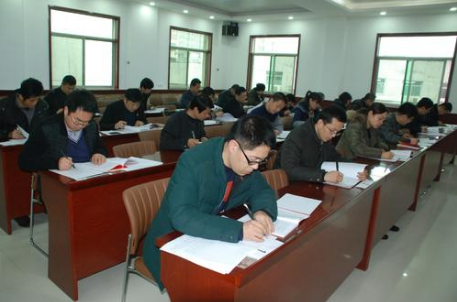


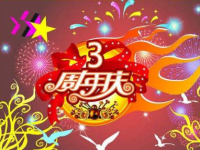
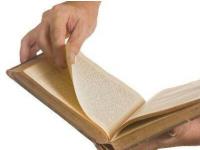
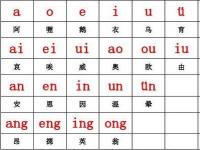


![[一次意外的什么作文]一次意外作文](http://img.chinazhaokao.com/uploadfile/2019/0812/20190812052115823.png)





